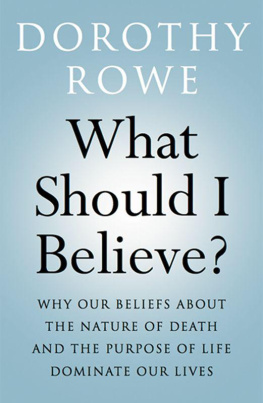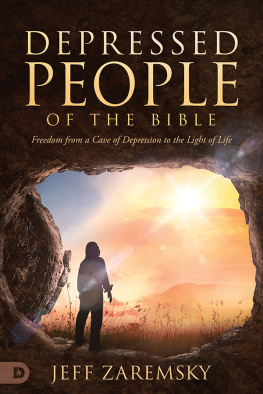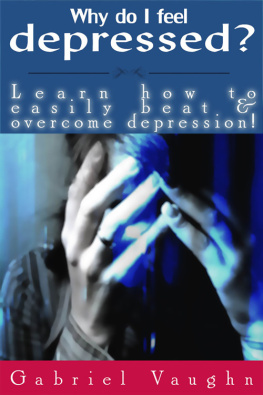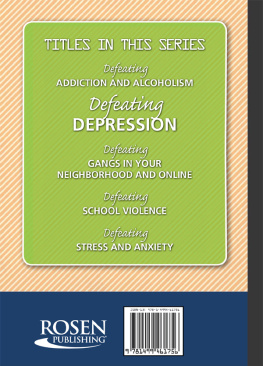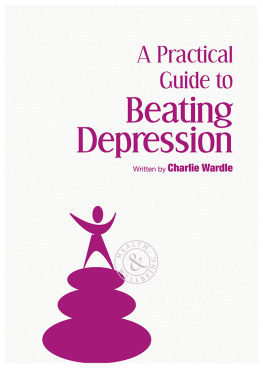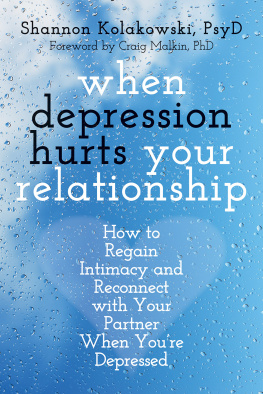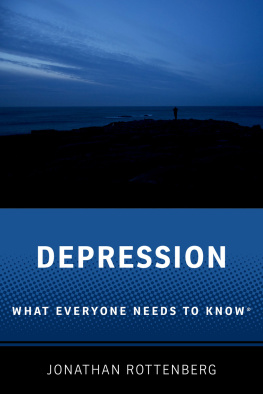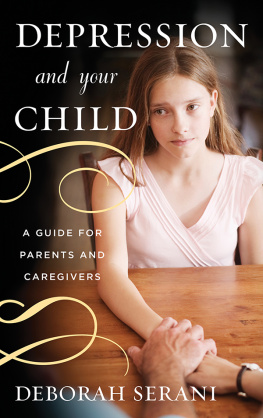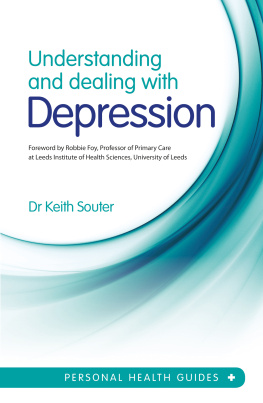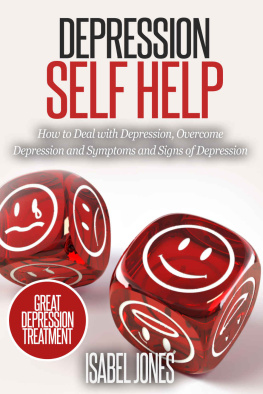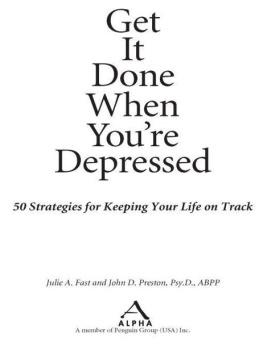Cover
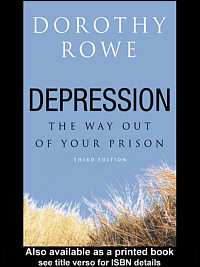
| title | : | Depression : The Way Out of Your Prison |
| author | : | Rowe, Dorothy. |
| publisher | : | Taylor & Francis Routledge |
| isbn10 | asin | : |
| print isbn13 | : | 9780203391945 |
| ebook isbn13 | : | 9780203391464 |
| language | : | English |
| subject | Depression, Mental. |
| publication date | : | 2003 |
| lcc | : | RC537.R66 2003eb |
| ddc | : | 616.85/27 |
| subject | : | Depression, Mental. |
Page i
DEPRESSION
First published in 1983 when it won the MIND book of the year award, this best-selling book has helped thousands of people leave the prison of depression. Dorothy Rowe gives people a way of understanding their depression which matches their experience and which enables them to take charge of their life and change it. She shows that depression is not an illness or a mental disorder but a defence against pain and fear, which we can use whenever we suffer a disaster that our life is not what we thought it was.
Depression is an unwanted consequence of how we see ourselves and the world. By understanding how we have interpreted events in our life we can choose to change our interpretations and thus create for ourselves a happier, more fulfilling life.
Depression: The way out of your prison is for depressed people, their family and friends, and for all professionals and non-professionals who work with depressed people.
Page ii
This page intentionally left blank.
Page iii
DEPRESSION
The way out of your prison
Third Edition
Dorothy Rowe

HOVE AND NEW YORK
Page iv
First edition published 1983 by Routledge and Kegan Paul
Second edition published 1996 by Routledge
Third edition published 2003
by Brunner-Routledge
27 Church Road, Hove, East Sussex, BN3 2FA
Simultaneously published in the USA and Canada
by Brunner-Routledge
29 West 35th Street, New York, NY 10001
Brunner-Routledge is an imprint of the Taylor & Francis Group
This edition published in the Taylor & Francis e-Library, 2003.
2003 Dorothy Rowe
Cover design by Lisa Dynan
All rights reserved. No part of this book may be reprinted or
reproduced or utilised in any form or by any electronic,
mechanical, or other means, now known or hereafter
invented, including photocopying and recording, or in any
information storage or retrieval system, without permission in
writing from the publishers.
British Library Cataloguing in Publication Data
A catalogue record for this book is available from
the British Library
Library of Congress Cataloging-in-Publication Data
Rowe, Dorothy.
Depression: the way out of your prison/Dorothy Rowe.3rd ed.
p. cm.
Includes bibliographical references and index.
ISBN 1-58391-286-X (pbk.: alk. paper)
1. Depression, Mental. I. Title.
RC537 .R66 2003
616.85'27dc21 2002151126
ISBN 0-203-39146-2 Master e-book ISBN
ISBN 0-203-39194-2 (OEB Format)
ISBN 1-58391-286-X (Print Edition)
Page v
CONTENTS
Preface | vii |
Preface to the second edition | ix |
Preface to the third edition | x |
Acknowledgements | xiv |
| The prison | |
| Inside the prison | |
| How to build your prison | |
| The depression story | |
| Why not leave the prison? | |
| Why I wont leave the prison | |
| Outside the wall: living with a depressed person | |
| Suppose I did want to leave the prison, what should I do? | |
| Leaving the prison | |
| The prison vanishes | |
Notes | |
Index | |
Page vi
This page intentionally left blank.
Page vii
PREFACE
Depression is as old as the human race, and rare is the person who has not felt its touch. Sometimes, suddenly, without apparent reason we feel unbearably sad. The world turns grey, and we taste a bitterness in our mouth. We hear an echo of the bell that tolls our passing, and we reach out for a comforting hand, but find ourselves alone. For some of us this experience is no more than a fleeting moment, or something we can dispel with common-sense thoughts and practical actions. But for some of us this experience becomes a ghost whose unbidden presence mars every feast, or, worse, a prison whose walls, though invisible, are quite impenetrable.
Depression, in this century, [the twentieth] has been called an illness and treated with pills and electroconvulsive therapy (ECT). Some people are greatly helped by this treatment. Their depression vanishes, never to return. However, for some people, pills and ECT bring only temporary relief or no change at all. For these people something more is needed, and this is not surprising, since being depressed is something more than being ill.
If we have measles or a broken leg, we may feel miserable and inconvenienced, but, unless we feel we are so ill that we might die, we do not spend our time worrying about our sins, or contemplating the futility of existence. Yet if we are depressed this is what we do. In our own way and in our own terms we think about, agonise about, the issues of life and deathwhich are about what purpose life has, what faith we can live by, whether our life ends in death or whether something lies beyond death, what we have done and our feelings
Page viii
of shame and guilt, fear and courage, forgiveness and revenge, anger, jealousy, hate and love. For some of us, out of this period of painful turmoil comes a measure of peace and wisdom; for others, the confusion continues.
Depression is so common in all cultures and throughout history that it seems to be more than just a painful illness. It seems to be a universal experience, a period of unhappy withdrawal, an uncomfortable hibernation where the person comes to realise that something has gone wrong with his life and that something needs to be put right. Why is it, then, that some people going through this experience do discover what it is that needs to be put right, while others go on and on in miserable confusion?
Over the past twelve years I have had long conversations with people whose depression has persisted despite all the best medical treatment. I have also had long conversations with people who have had their fair share of problems but nevertheless still cope. People who cope and people who get depressed see the issues of life and death in very different terms.
Next page

